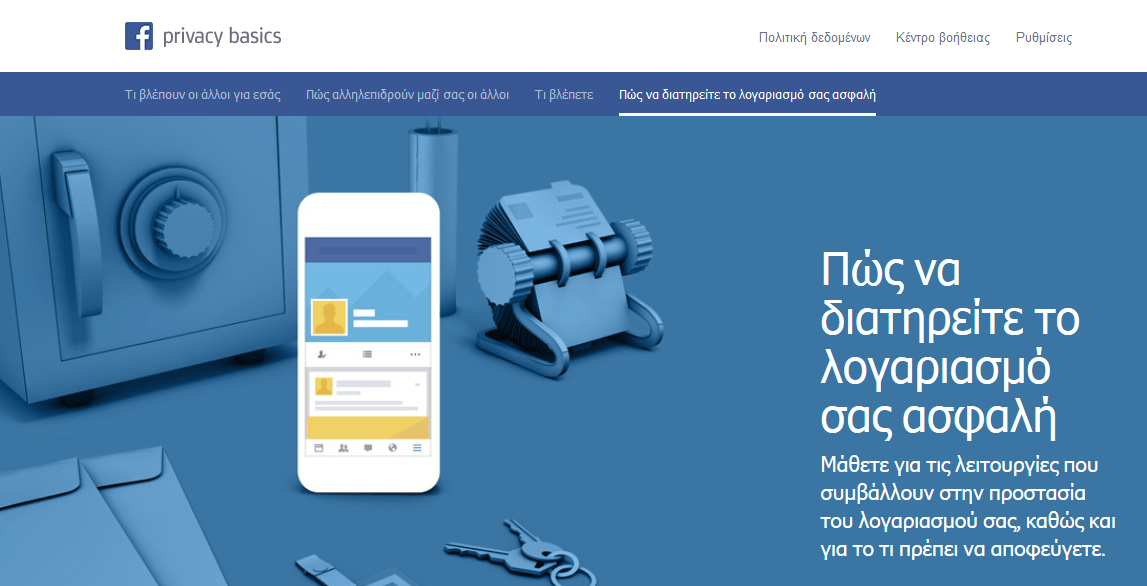If you are not sure how to configure the settings security you at Facebook to protect your account, then read the new improved wizard that has posted your favorite social network.
In the light of the latest news that revealed that the Internet is even more dangerous than we thought, and with people slowly losing their confidence in all sorts of social media platforms, the Facebook decided it would be a good idea to step forward and show them users of what exactly they should do to ensure the protection of their privacy.
According to Facebok's official announcement, the reason for issuing the guide “How to keep your account safe”Was that more and more people have shown a keen interest in how their account should be handled so as not to risk fraud or spam or mismanagement of their posts.
Ο guide αυτός παρέχει λεπτομερείς πληροφορίες σχετικά με διάφορα θέματα ασφαλείας που ενδέχεται να συναντήσουν οι χρήστες, όπως, πώς να δημιουργήσουν έναν ασφαλή κωδικό accesss, or even ways to detect a phishing attempt or if someone is trying to access your account.
The guide also contains more general information, such as the steps that each Facebook user should consider, for example, the fact that one should always remember to disconnect from his account immediately after using a public computer.
In addition, the content is available in 40 languages, including the Greek language, so that it can be easily understood in the native language of each and there are no gaps in its understanding.





